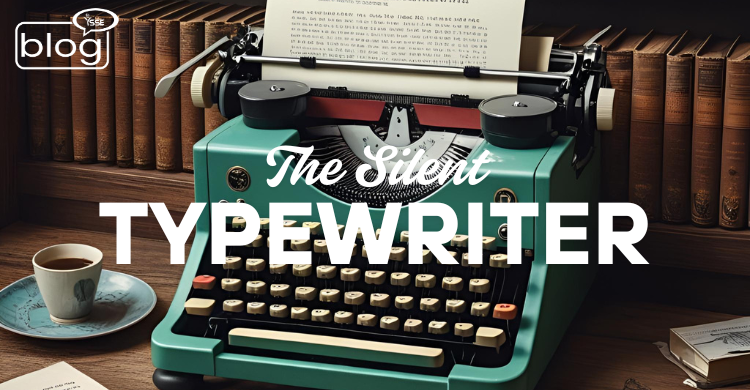My intention was never to pursue a career in journalism.
Words have never been my forte since my voice was taken away five years ago because of an accident. When I lost my voice, I became a writer because only I could fill the void with narratives people ignored.
My published articles only generated enough money to pay the rent. I discovered the typewriter, which changed everything.
I stumbled upon the typewriter while exploring my deceased grandfather’s attic, which contained yellowed newspapers and moth-damaged coats. The heavy black Remington with round keys stood before me with its paint showing signs of wear yet retaining its glossy surface.
I removed the dust from the machine before placing it on my desk. I pressed a key as a matter of routine. When I typed the letter “A,” the paper received the character before an unsettling silence.
Then, all on its own, the machine typed:
“She didn’t jump. She was pushed.”
I froze.
The words appeared sharp and deliberate, the letters deep and angry on the page. My hands trembled. I knew the case—the “suicide” of a local politician’s wife, closed years ago.
I typed back, clumsy fingers shaking:
“Who are you?”
The carriage shuddered.
“You want stories. I have them. But truth demands a price.”
That first article made headlines. Readers devoured every word, praising my “investigative genius.”
Then came the second, then the third. Each story is more shocking than the last—cold cases, hidden scandals, crimes the police had quietly buried. The typewriter never stopped.
And neither did my career.
But there was always a price.
At first, it was small things.
My coffee cup would be empty even if I hadn’t touched it. My plants withered overnight. My apartment stayed cold no matter how high I turned the heat.
Then it got worse.
I began waking with inky smudges on my fingers and wrists, though I hadn’t typed. Neighbors avoided me, saying I “looked different,” like I carried a shadow too heavy for daylight.
Still, I kept typing. Each article made me more famous. I told myself I was giving a voice to the voiceless. That the truth mattered more than the cost.
But deep down, I knew the truth was eating me alive.
One night, the typewriter produced a single line:
“The next story is yours.”
I stared at the words until they blurred. My reflection in the window looked pale, unfamiliar.
With shaking hands, I typed:
“What do you want from me?”
The keys clattered violently.
“Payment. You knew the bargain. You write, I take.”
“Take what?”
“Time.”
I stumbled back. Suddenly, I felt it—years slipping through me like sand. My fingers ached, my chest heavy. The typewriter hummed, almost purring.
I could stop. I could push it out the window, run, and forget.
Nevertheless, my answer disagreed.
At that moment, my fingers landed on the keyboard.
The truth might have been worth my life as a payment. All stories needed telling and silence needed breaking, even when it required my personal sacrifice.
The typewriter waited, patient as ever.
I began to type.
I now hold the title of justice’s representative in newspapers for multiple weeks. My fatigue and trembling hands with a pen remain hidden from their eyes.
In the room’s corner, the typewriter rests with its keys revealing their teeth-like appearance through the darkness. The typewriter continues to use me for something else.
Every morning, I tell myself I’ll stop.
Every night, I sit back down.
Because when the typewriter starts typing, the words aren’t mine. They’re the truth.
And I can’t stop telling it—even if it takes everything I have.
To read more stories, click here.
Writer
Ankita Dey
Intern, Content Writing Department
YSSE

